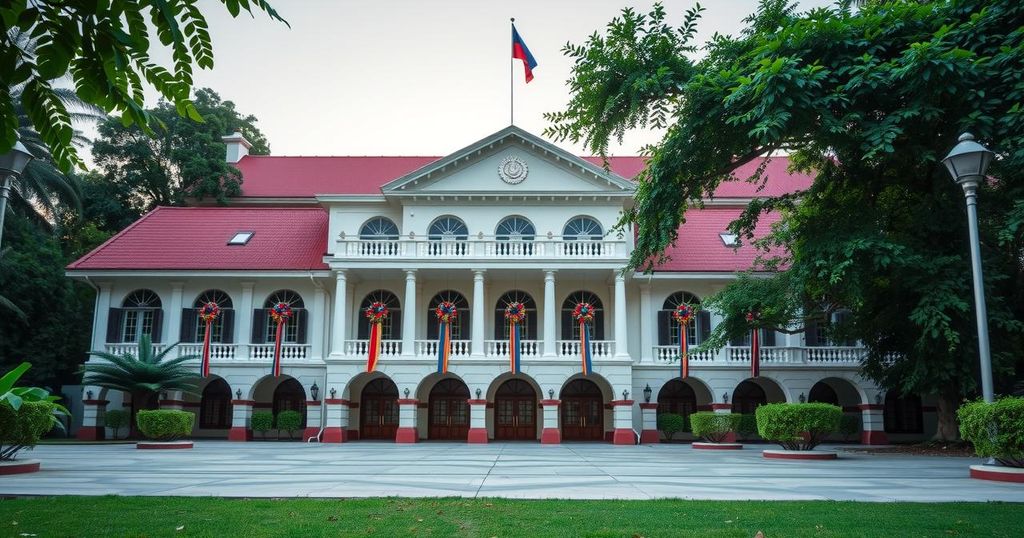Voters in Comoros are participating in parliamentary elections for the 33-seat assembly, following last year’s contested presidential election. Accusations of electoral irregularities have been prominent, with the ruling party denying such claims. Opposition figures express concerns about President Assoumani’s tight grip on power and succession plans involving his son. Results are expected by Friday.
Voters in the Comoros Republic are casting their ballots for the 33-seat parliament amid allegations of significant irregularities in the previous year’s presidential election. This election comes after President Azali Assoumani’s re-election, which has been challenged by opposition leaders. The ruling party has refuted all allegations regarding electoral misconduct.
Polling began early on Sunday, with approximately 338,000 registered voters participating. The Comoros last held parliamentary elections in January 2020, and nearly 100 candidates are contesting this election, selected by the Supreme Court.
Assoumani has faced criticisms from his opponents for perceived authoritarian tendencies. They suspect he is positioning his eldest son, Nour El-Fath, to succeed him upon the expiration of his term in 2029. Assoumani has maintained control over the nation since a coup in 1999 and has secured victory in three subsequent elections.
In 2024, Assoumani conferred extensive powers to his son, tasking him with coordinating all government affairs. Certain opposition parties, including the Juwa party, led by former President Ahmed Abdallah Sambi—currently serving a life sentence—have called for a boycott of the elections, while others have stood against this proposal.
Hamidou Karihila, an opposition candidate from the Hope of the Comoros party, expressed the view that participation in the elections might reveal the flaws in Assoumani’s regime, aiding in its eventual decline. Success in polling results is anticipated by Friday.
The political landscape in Comoros has been fraught with challenges, particularly under the rule of President Azali Assoumani, who has been in power since 1999. Following a coup, he has survived numerous elections, often facing opposition claims of electoral fraud and authoritarianism. The current election is significant not only due to its timing but also due to ongoing concerns about governance and succession within the ruling party. Assoumani’s attempts to bolster his son’s position have further fueled these controversies, highlighting the political tensions surrounding this parliamentary election.
The elections in Comoros reflect the ongoing political tensions and governance challenges within the nation. Amid claims of electoral misconduct and calls for boycotts from certain opposition factions, citizens have exercised their right to vote. The spotlight remains on Assoumani’s regime and potential implications for future leadership transitions as results of the election are awaited later this week.
Original Source: www.theadvocate.com.au






